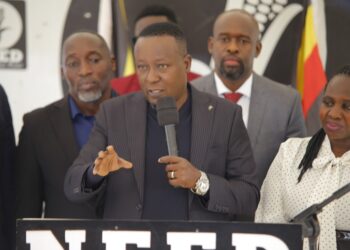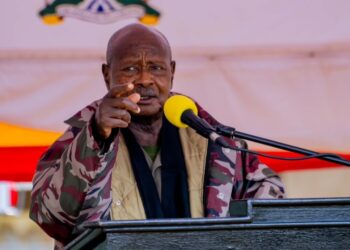In her bizarre press conference on August 19, 2019, the Hon Evelyn Anite, Uganda’s State Minister in Charge of Investments, reopens a debate we all must revisit.
In what may be seen as stroking a West-Nile-nationalism and pandering to ethnic solidarity/sympathy, she asks the questions who killed Hon Ibrahim Abiriga, the former Arua municipality MP and who killed Hon Francis Ayume, former Attorney General killed in a yet to be satisfactorily explained ‘motor accident.’
Ayume died in a period in which he and the late Hon James Wapakabhulo strenuously advised against an omnibus amendment of the constitution to lift presidential term limits, and Abiriga after leading what started as a joke but ultimately led to the lifting of presidential age limit. The beneficiary of both of these amendments is largely thought to be Yoweri Museveni.
Abiriga’s story is yet to be written but in Andrew Rice’s book, The Teeth May Smile But The Heart Does Not Forget, Murder and Memory in Uganda, published in May of 2009, one begins to patch the claim of tribalism and selective justice in the pursuit of the killers of the Eliphazi Laaki, a sub-county chief killed in Idi Amin and Mose Ali’s regime – both from West Nile.
In the book, Hon Francis Ayume, then a Solicitor General, a senior government official in the ministry of Justice, does not only visit the suspected killers in Luzira prison, provides for their upkeep at the maximum security prison on the shores of Lake Victoria, but hosts a celebration party at his minister’s village home in Ntinda, after the acquittal of the two suspects, who were also his constituents. Their defence lawyer was a then youthful and evergreen Caleb Alaka. The government prosecutor, I believe, was Simon Mugenyi Byabakama, now chair of the electoral commission and Justice of the Court of Appeal.
All these would have passed off as a nonevent if it were not for the fact that Eliphazi, a sub-county Chief was killed on suspicion of hiding Museveni, then a rebel involved in subversive activities – activities he now describes as liberation struggles.
When he captures power, Museveni, according to the book, does not only facilitates the late Eliphazi’s son, a US based attorney, to carry out an investigation and recovery of the body of his father, his government charges two former Amin soldiers with whom the late Eliphazi’s car was recovered in West Nile.
So in asking the question who killed these West Nile luminaries, Anite may have done in the heat of the moment but in so doing peeled a hurting and unhealed scar. It is not too much to ask that we seek answers. If we could get on with a long search for the killers of Eliphazi Laaki, why would we not get on ,with similar gusto, with the search for the killers of Abiriga and Ayume and indeed many other people killed in such mysterious circumstances under Museveni’s regime?
The sophistication that we now enjoy should make it a whole lot easier to embark on these investigations. All we require is to summon the will to do so and deny people like Hon Anite the opportunity to weaponize these past incidents.
Do you have a story in your community or an opinion to share with us: Email us at editorial@watchdoguganda.com











